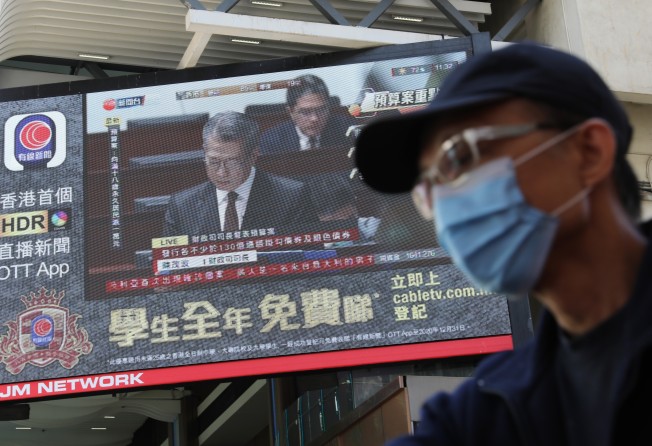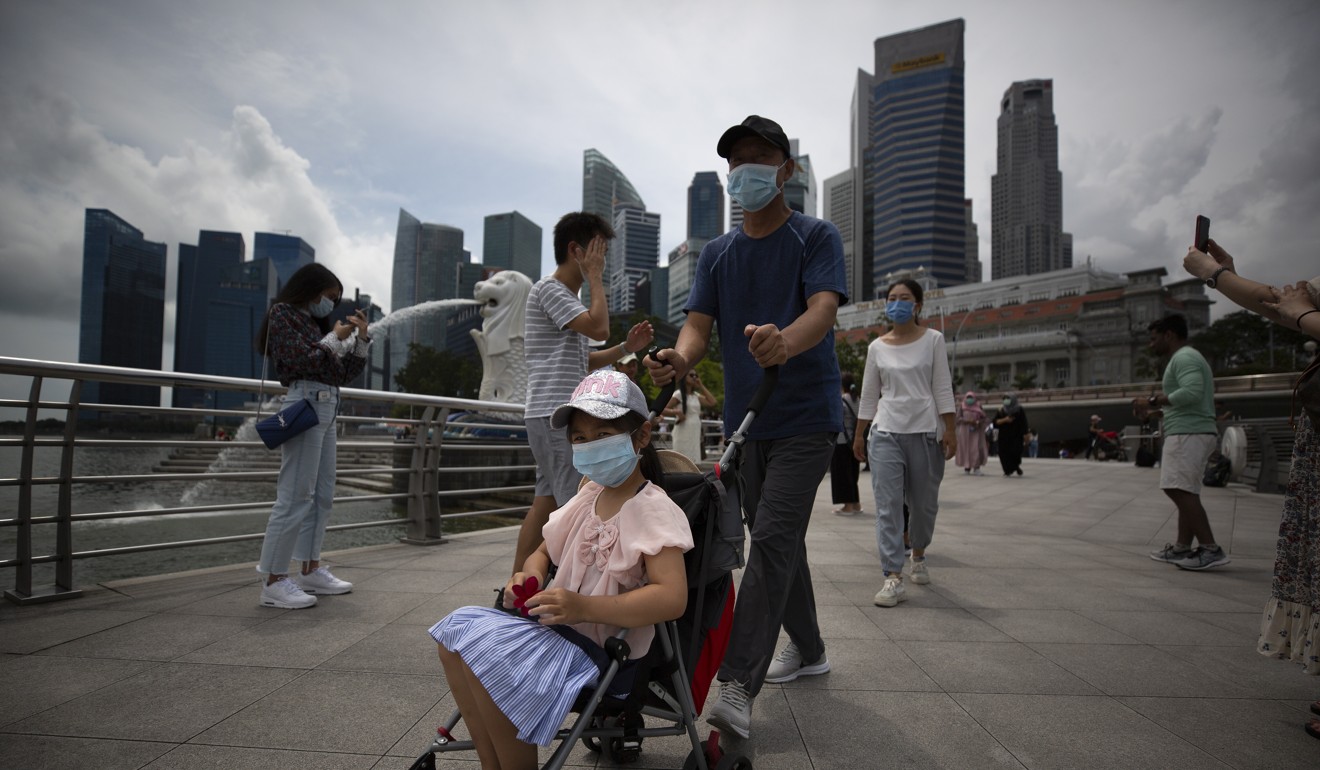Careful what you wish for: Hong Kong is not Singapore when it comes to civil service pay cuts
- This year’s budget was an extraordinarily tough fiscal balancing act for Financial Secretary Paul Chan
- The government has to be careful not to send out a message to the private sector that the time for pay cuts has arrived

“It was the best of times, it was the worst of times,” the classic line from English literature goes, and that’s what Finance Secretary Paul Chan Mo-po must be feeling after rolling out his spending blueprint for Hong Kong.
His budget offered a HK$120 billion relief package, the biggest since the city returned to Chinese sovereignty in 1997.
It was an extraordinarily tough fiscal balancing act for Chan, with the city’s economy reeling from the combined impacts of the US-China trade war, months of often-violent anti-government protests, and the Covid-19 epidemic.
But as another saying goes, “adversity breeds success”, and that has been the case, to some extent, for Chan, with this budget bringing out some of his best moments.
Chan also earned his “God of Fortune” nickname this time as the dispenser of cash handouts of HK$10,000 each to about 7 million permanent residents, along with many other initiatives aimed at helping businesses weather the perfect economic storm.
Thanks to the cash hand out, this year’s budget became the most popular of Chan’s four spending blueprints since he took office in 2017. It not only won a record approval rating of 46 per cent, the highest of any budget since 2010, Chan’s personal popularity surged by nearly 17 per cent, a rare rebound when the whole government is under fire for its poor handling of the public health crisis.
Still, it may be too early for a victory lap, given all the criticism. They include questions as to why there are no pay cuts for senior officials and the city’s 180,000 civil servants in the face of an unprecedented budget deficit of HK$139 billion. A substantial, additional funding request for the police at a time of high social and political tension is also snowballing into a major controversy.

To make things more embarrassing, Singapore announced a one-month pay cut for its senior officials as a show of solidarity with citizens. Hours later Hong Kong’s embattled leader, Chief Executive Carrie Lam Cheng Yuet-ngor, decided that she and her politically appointed cabinet members would donate a month’s salary, totalling more than HK$10 million, to the Community Chest charity fund.
The government has failed to meet public expectations in many ways, and this salary donation decision, apparently a political gesture, came too late.
Why not a direct pay cut instead of a donation, many are asking, but that raises another issue: political correctness does not always necessarily mean viability. Critics advocating a direct pay cut should also be careful what they wish for.
The city’s mini-constitution, the Basic Law, stipulates that post-1997 “pay, allowances, benefits and conditions of service [should remain] no less favourable than before” for all civil servants. That explains why the only government pay cut, in 2003 during the severe acute respiratory syndrome epidemic, was set at a rigid 4.8 per cent – exactly the accumulated pay-rise percentage since 1997.
Being this city’s biggest employer, the government has to be careful not to send out a message to the private sector that the time for pay cuts has arrived.
The negative impact that an across-the-board pay cut would have on civil servants and their families cannot be ignored either. It can defeat the purpose of the cash handouts and other consumption-boosting measures.
So, copying Singapore or not, a collective donation by political appointees – excluding civil servants – could be the easier way out. After all, Chan’s hands are tied, in a sense, when dealing with his own colleagues’ pay adjustment. Hong Kong is not Singapore politically and economically.
Considering all that, surely it’s the beginning of a much tougher time for Chan before he can have the luxury to enjoy the instant, but perhaps short-lived, applause.